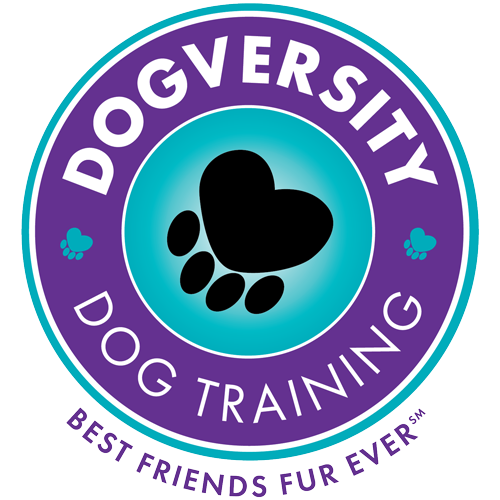There are a lot of variables present with this question. Age of dog, breed, behavior, etc. The barking could be a sign of a desire to play and frustration at being removed continually. It could be fearful aggression due to lack of exposure. Your dogs’ social skills, experience, age, and breed all play a huge role in their sociability with other dogs they have not met before. Our recommendation would be to speak with a trainer directly to help determine how to best work through this with your dog. Rest assured, you are not the only human in this situation. We, at BFFE, are seeing a large social change in many of our “teenage” pups due to a lack of social opportunities during COVID. Many of these dogs have benefited hugely from a training experience where they can begin to develop their skills in meeting new people, dogs, places, and experiences.
Hello Diane – this sounds like what is commonly described as reactivity. Many dogs can play off leash and be completely appropriate. When the leash is on it can act as tension between you and your dog. I do not recommend petting her or calming her in any way while she is in that high stress state, however, I would keep her moving so she can’t fixate on the item. Make sure when she is calm to tell her she is doing a great job. Reactivity is generally a managed behavior that we would love to help you with! We will spend time to figure out the triggers and what the reaction is coming from. Our training programs can be catered to you and your pups needs, please give us a call at 410-773-7529 so we can discuss all of our balanced options.
Hello Gina! The behavior that your dog is exhibiting sounds like some type of fear based aggression. I would recommend taking it slow when introducing her to other dogs in a neutral setting, with a neutral dog. Dogs are just like humans in that we don’t always like everyone. That may be the case for your dog and that is totally normal for some pups, often it is a managed behavior. She is most likely great in the home with your current dogs because she has grown up with them and comfortable with their personalities. We would love to do an evaluation to get to know your dog and see if we can be of any help in one of our training programs! Please call us at 410-773-7529.
If your dog is jumping and showing signs of aggression, stop reading this now and contact a qualified canine behaviorist. This is a potentially dangerous situation and requires professional attention.
However, it is far, far more likely that your dog is attention-seeking and/or excited. In these situations, there are two main approaches to stopping dogs from jumping up. It is vitally important to remember that neither of them involves punishment. Punishing your dog for jumping will, at best, confuse them; and at worst result in a frightened and potentially aggressive dog – this is a recipe for disaster.
The first method is to divert the jumping behavior into something more appropriate – usually a “sit” command. As the dog gets more and more excited and bouncy, you tell them to sit – and then reward them when they do, with fuss and/or a treat. This way, the dog gets some attention and learns that “sit” is appropriate, but “jump” isn’t. Meanwhile, you can continue to greet and chat to your guests, while your dog sits obediently at your feet…
It sounds great, but it does take some work and practice! Ideally, invite some friends who can regularly visit, and who understand the training you’re doing; they can visit (and even come in/go out/come back in repeatedly while you train your dog).
The other thing you can do (and this is useful on its own or in conjunction with “sit” training) is to completely ignore your dog whenever they jump. You do, however, reward them when their front feet are on the floor. This way, you are teaching them that jumping does NOT result in attention but standing on all fours does. Again, having “mock-visitors” will help reinforce the fact that what you’re teaching them is universal – it doesn’t go out of the window when new and exciting people are around!
Of course, if you’d like to seek out professional assistance from our talented staff, try checking out our balanced training programs here at Best Friends Fur Ever!
Often, there is a frustrating process of training and teaching dogs manners and good behaviors. The training problem though is that owners sometimes forget about one of the main reasons that any human or dog will do as instructed or behave in a positive way which is pure motivation. Example; just like when you need some motivation to start exercising more or to get your house cleaned out, dogs need motivating reasons big enough to make them want to stop wetting on your carpet or eating holes into all of your socks. Dog treats can be a sure way to motivate your precious pup to do almost anything you desire. In addition to treats, high praise can be a great motivator for your pup.
